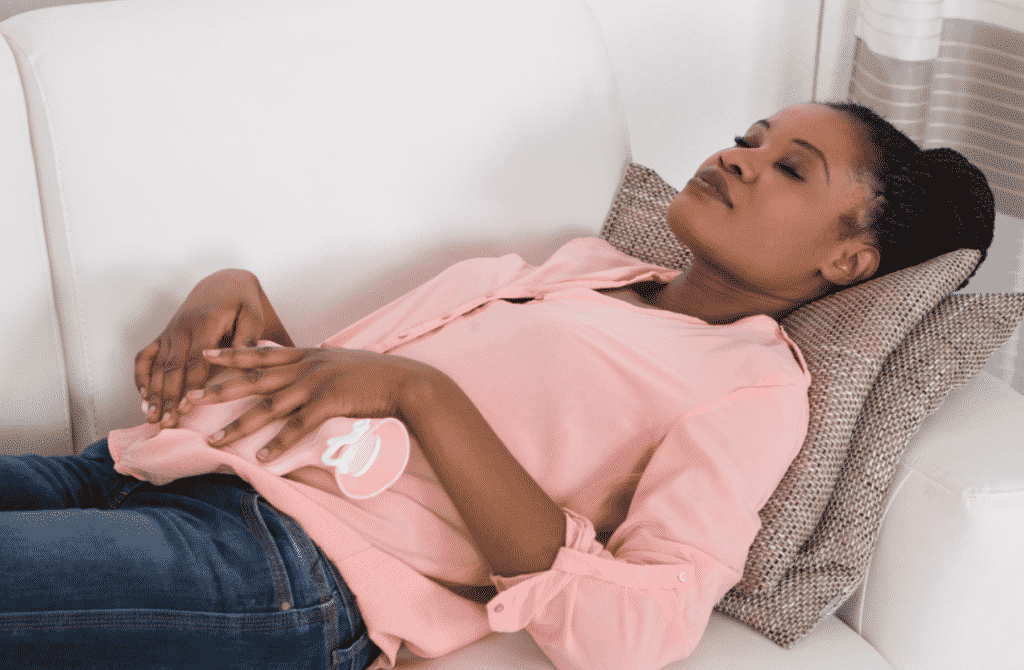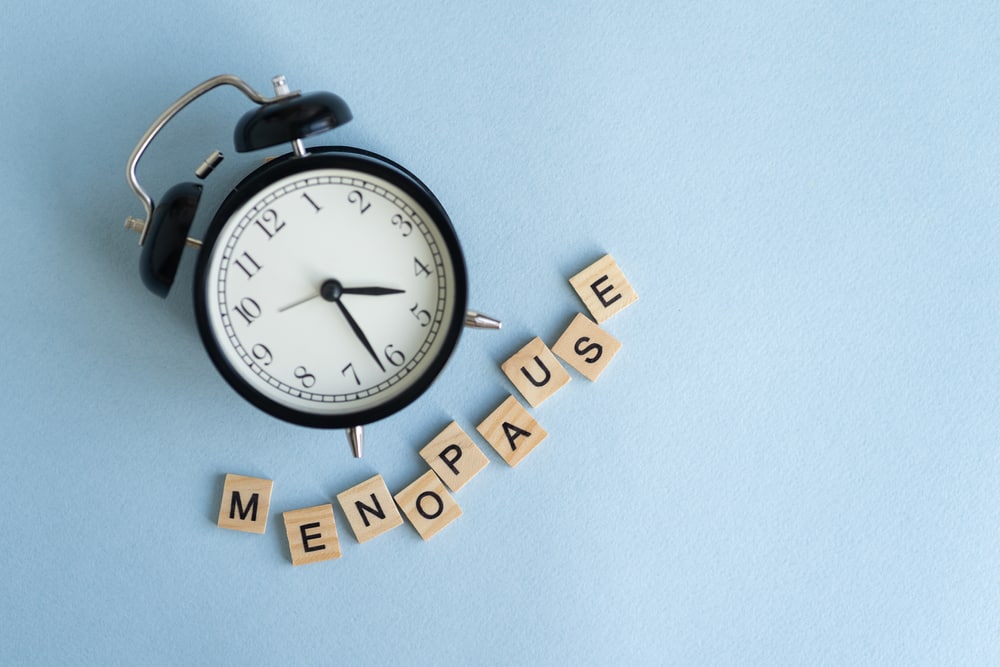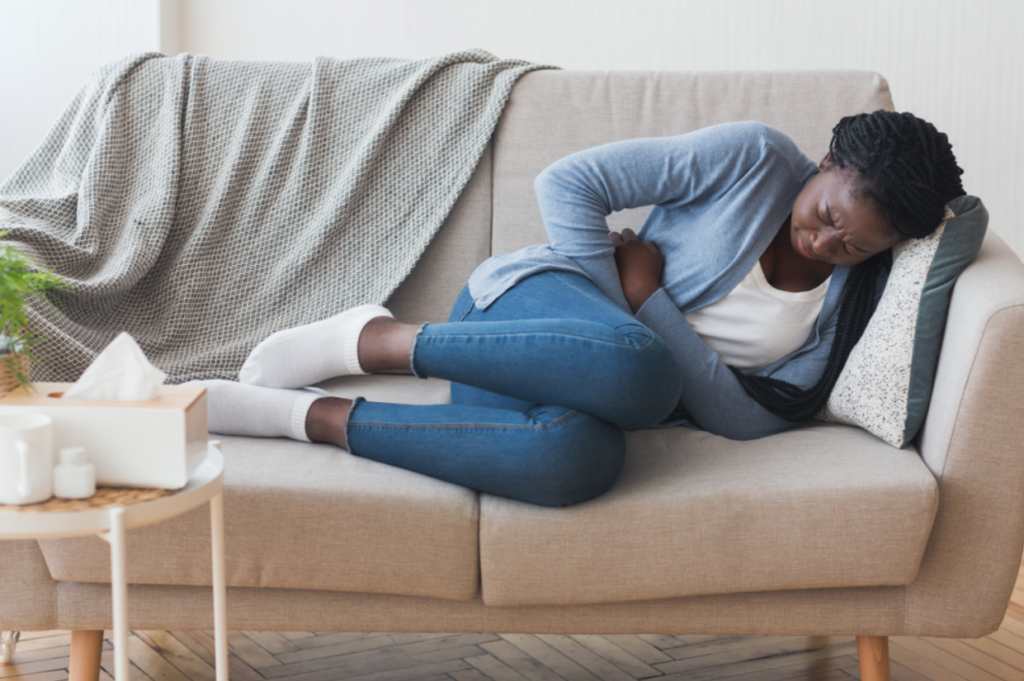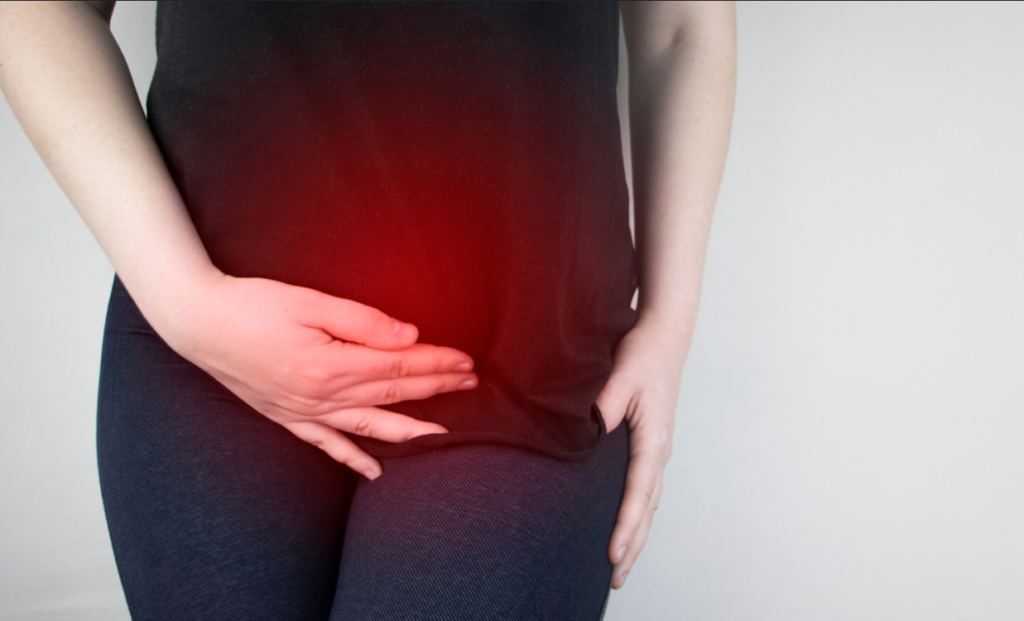Abdominal cramping is a thing that most women share a common disdain for. The pain and discomfort that follows abdominal pain is not pleasant for anybody to bear. Unfortunately for most women, abdominal cramping is something that is inevitable because it is normally associated with their periods. Sometimes, women may experience abdominal pain after menopause. In some cases, ovulation also comes with its own type of abdominal cramps.

Many women express relief when they approach menopause because they expect that the dreadful abdominal pain that accompanies periods will finally be gone. Imagine the disappointment when they discover that abdominal cramps may still occur even after they reach menopause.
Yes, abdominal pain may happen after menopause due to many reasons. Sometimes, it is a normal response of your body as it transitions into menopause. In some other cases, it might be due to something else entirely.
This post will let you know all you need to about post-menopausal abdominal cramping; when you should be concerned about it, and possible treatment options for it.
Before talking about abdominal pain after menopause, it is imperative that you understand what menopause is.
Let’s dive in!
What Exactly Is Menopause?
Menopause is a natural event that marks the end of a woman’s menstrual cycles. In short, it is the period when a woman stops having her periods. You should note that you can only be said to have reached menopause if you haven’t had your period in 12 consecutive months.

Menopause is not an event that happens abruptly. This means that you don’t just stop having your periods suddenly. There are progressive events that lead up to the onset of menopause. The period of time leading up to menopause is referred to as “perimenopause”.
Perimenopause is that period when your hormone levels start to fall with a significant decline in the production of estrogen and progesterone. It can also be characterized by fluctuating hormonal levels.
Abdominal and pelvic pain are some of the symptoms you experience due to falling and changing hormone levels. Normally, this type of abdominal pain resolves on its own over time, especially after menopause. However, if it does not, then you should consider other possibilities that might be responsible for your abdominal pain.
Possible Causes of Abdominal Pain After Menopause
If you are still experiencing abdominal cramping after menopause, then you should consider the following possibilities as the reason for abdominal pain. At this point, we really advise speaking with your doctor for proper guidance.
1. Gastro-intestinal diseases/infections
Problems with any part of your gastrointestinal tract can produce abdominal pain or cramping as symptoms. Usually, the pain comes in the lower abdomen. Examples of GI problems that may cause abdominal pain include: food poisoning, diarrhea, constipation, irritable bowel syndrome, and so on.

2. Endometriosis
Endometriosis is a condition in which the tissue that normally lines the inside of the uterus grows outside of it.
The tissue still thickens and bleeds as it would inside the uterus even though it is found outside of it.
Previously, endometriosis was thought to affect only women of childbearing age. However recent research has shown that about 2-5% of post-menopausal women experience endometriosis.
Endometriosis after menopause usually presents with lower abdominal pain, intestinal distress, and ovarian cysts.
3. Fibroids
Fibroids are small, benign(non-cancerous) growths that develop in or around the uterus. In addition, fibroids can cause abdominal or pelvic pressure/pain. Fibroids are more common before menopause, and they usually shrink or go away by the time a woman reaches menopause. They however persist after menopause in some cases.
Read this post to learn more about fibroids after menopause.
4. Ovarian cysts
Ovarian cysts are small fluid filled sacs that can develop on your ovaries.
In most cases, ovarian cysts don’t usually cause any symptoms and eventually go away on their own. However, they may sometimes bleed, twist or burst open. When this happens, it can cause serious abdominal pain. This may happen before, during, and after menopause.
5. Cancer
Cancer of the ovary and uterus, as well as bowel cancer can cause abdominal pain. If you have other symptoms, then you should see your doctor. If any of the following symptoms accompany abdominal pain, then it may be a sign of cancer.
- Weight loss
- Nausea or vomiting
- Blood in faeces
- Abdominal swelling or bloating
- Vaginal bleeding
- Fatigue
- Painful sex
6. Pelvic floor prolapse
As you grow older, the muscles that make up your pelvic floor become weaker. Your pelvic floor is a collection of muscles that supports your pelvic organs and helps to control your bladder and bowels.

When the pelvic floor muscles become weak, it can cause one or more of your pelvic organs to drop down (prolapse). This will lead to pain or discomfort in the lower abdomen and pelvis.
7. Vaginal atrophy
Vaginal atrophy is a condition where the walls of the vagina become thinner, drier, itchy, and inflamed. This occurs due to the reduced estrogen levels during menopause. Estrogen is responsible for the maintenance of the vaginal walls.
Vaginal atrophy may cause the vaginal canal to become narrow and can cause sexual intercourse to be painful.
Also, lower estrogen levels may cause the lining of your bladder and urethra to become thinner. This increases your risk of having Urinary Tract Infections (UTIs).
All these may manifest as pelvic pain or discomfort.
Treatment of Abdominal Pain After Menopause
Your treatment options will be based on what is causing your abdominal pain. Talk to your doctor to ascertain the cause of your abdominal pain.
Abdominal pain diagnosis mostly involves a pelvic examination among other tests. Once your doctor has confirmed the cause of abdominal pain, you will be placed on a treatment plan suitable for you.
Conclusion
Abdominal cramps after menopause in some cases are nothing to worry about. You might still experience some menstrual symptoms after menopause. In some other cases, it could be an indication that something is wrong.
This is why you should contact your doctor if you have any concerns or if you develop other symptoms alongside abdominal pain.

